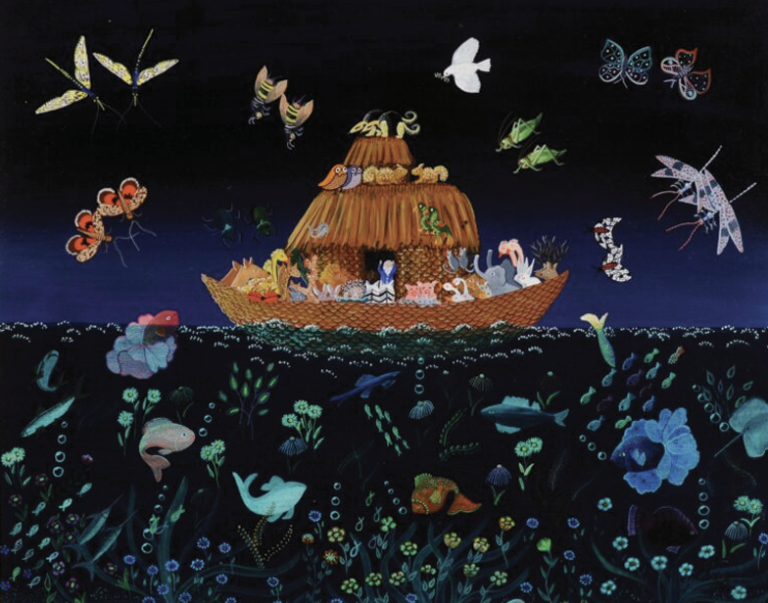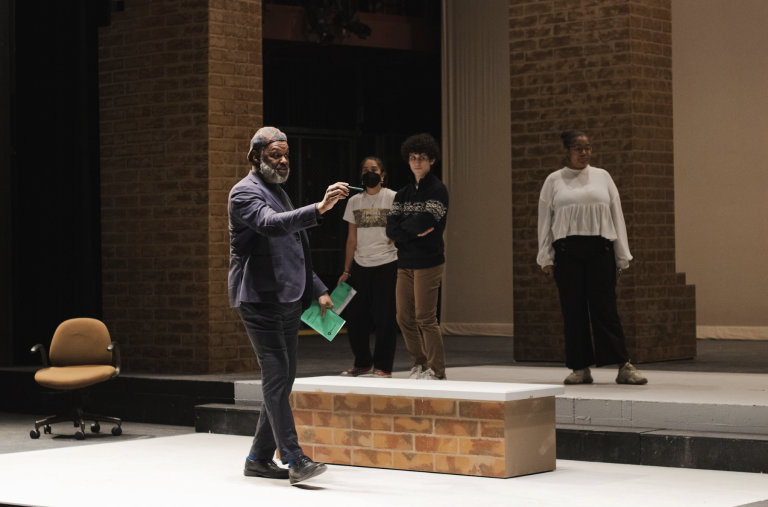Hannah Smith ’26
Executive Entertainment Editor
On Jan. 28, Mary Harron, director of projects such as “American Psycho,” “I Shot Andy Warhol” and “Alias Grace,” visited Trinity to give a talk as part of the A.K. Smith Scholars Series sponsored by the English department. Her talk was titled “‘The Past is a Foreign Country:’ Mary Harron on Adapting History for the Screen.” She discussed her early years breaking into the film industry, her experiences while creating her first film, the process of depicting history in its truest form in her recent television project “Alias Grace” and what it means to be a female filmmaker.
Harron’s early years were spent as a music journalist writing about the early American punk scene. She wrote about musicians like Lou Reed and the Velvet Underground and even landed the Sex Pistols’ first interview that was to be published in America. After a few years, Harron felt unsatisfied in the world of journalism and took her talents over to London where she worked as a researcher and documentarian for the BBC.
Harron’s directorial debut came in the form of “I Shot Andy Warhol,” a drama documentary about the life of Valerie Solanas (played by Lili Tayor), a radical woman of the 1960s who wrote the “SCUM Manifesto,” explaining what she described as the natural superiority of women over men, and the attempted assassin of Andy Warhol. Harron did not want to make Valerie a “sentimental heroine;” instead she wanted to share a female story from the time of revolution.
For years, Harron was hesitant about directing and taking that next step in her career as a filmmaker. She didn’t think she had the experience or technical training to take on the huge responsibility of directing, but she knew she had a story to tell. She said, “I don’t know if I’ll be a good director, but I know I have something to say… If you have something to say, that’s more important than anything.”
In the process of adapting history into film, Harron emphasized the “barbarity of the past.” In all of her work with period pieces, including “I Shot Andy Warhol” (1960s), “American Psycho” (1980s) and “Alias Grace” (mid-1800s), Harron relied on primary sources to tell the harsh reality of the past as opposed to what she called “prestige entertainment,” or feel good history that depicts a sanitized version of the truth. Harron warned that “If we forget how different our history was, we are ignoring the people who got us where we are.” Similarly, Harron explained that “Hollywood feminism” is nothing but wishful thinking about what the past was really like. She referenced the television series “The Marvelous Mrs. Maisel” as a “modern woman dressed in period dress.” A woman like Mrs. Maisel would never have gained the success that she did in the show — instead, she would have been banished from society and thrown in a psychiatric hospital. While making her show “Alias Grace,” Harron claims to have been “ruthless of the past.” She ensured the accuracy of social forces and the position of women in society compared to other period dramas like “Downton Abbey.”
After Harron’s talk, Cinestudio hosted a 25th anniversary screening of “American Psycho,” her most popular film, followed by a Q&A presented by Trinity’s English and Film Studies departments. It was co-sponsored by the Trinity Institute for Interdisciplinary Studies, Women and Gender Studies, Theater and Dance, Philosophy, and Sociology departments.
“American Psycho” is by far Harron’s most popular film in her filmography and it has only grown in popularity over the years as it has been parodied in recent films, commercials and television series. It has even been taken over by Gen Z for meme content across all social media platforms. The film has gained a cult following after its polarizing debut in 2000, and 25 years after its release, people were lined up at the doors of Cinestudio nearly filling up the entire 500-seat theater. The audience was as large as I’ve ever seen it and interacted with the film throughout the entire screening. There were uproars of laughter whenever Patrick Bateman (played by Christian Bale) said his now infamous line, “I have to return some video tapes.” The Q&A that followed the screening was filled with rapid fire questions as the host attempted to field as many audience questions as possible before Cinestudio’s next screening of the night.
During the Q&A, Harron discussed what it was like translating Bret Easton Ellis’ novel “American Psycho” to film. She focused on the 1980s from a historical distance, albeit not even 20 years in the past. She wanted to emphasize the importance of understanding the 80s in a way that even the 80s didn’t understand. Just like “I Shot Andy Warhol” and “Alias Grace,” the film is meant to remember the “barbarity of the past.” Harron reflected on the 80s as a psychotic time ruled by “predatory capitalism,” a concept that was personified by Patrick Bateman and his friends. Of course, there were a few questions thrown at Harron about what it was like working with Christian Bale and she had nothing but great things to say. She highlighted his intense interest in the character of Bateman while auditioning for the role and complemented the way in which he understood Bateman the same way that she had imagined him — as a pathetic monster who fell from Mars and never learned how to behave like a human being. Just like her, he valued research and appreciated the importance of discussion while building a character, especially someone as complicated as Bateman. Neither of them wanted to glamorize Bateman or make him seem cool in any way. Just as is the case with Valerie in “I Shot Andy Warhol,” Harron didn’t want to make Bateman’s sex life or vicious murders titillating in any way and Bale completely agreed. She ended the Q&A by mocking all of the “Wall Street bros” that flock to her and praise her for making such an incredible film. When they tell her they’ve seen her movie 50 times, she responds: “Why? Don’t you know I’m making fun of you?”




+ There are no comments
Add yours